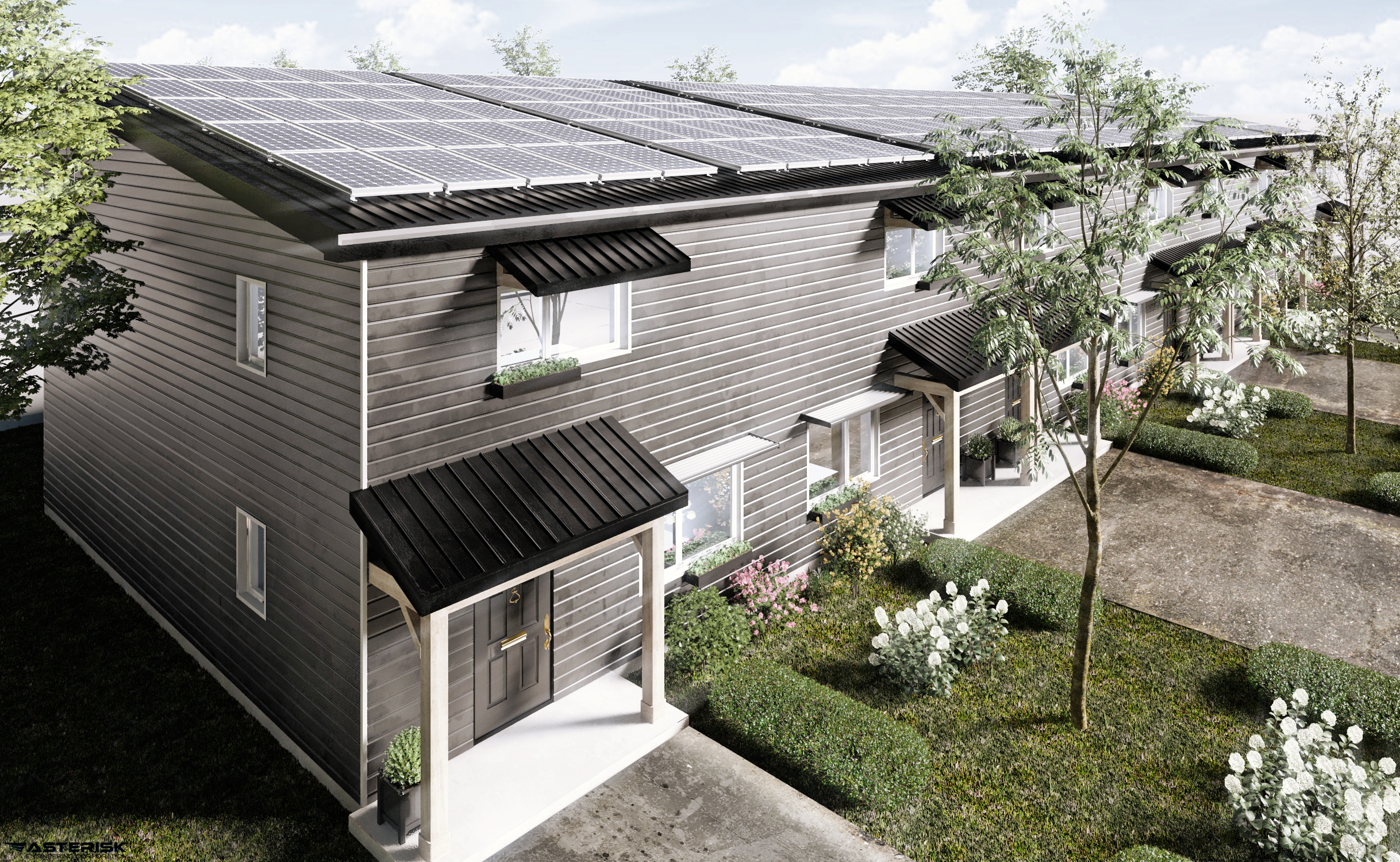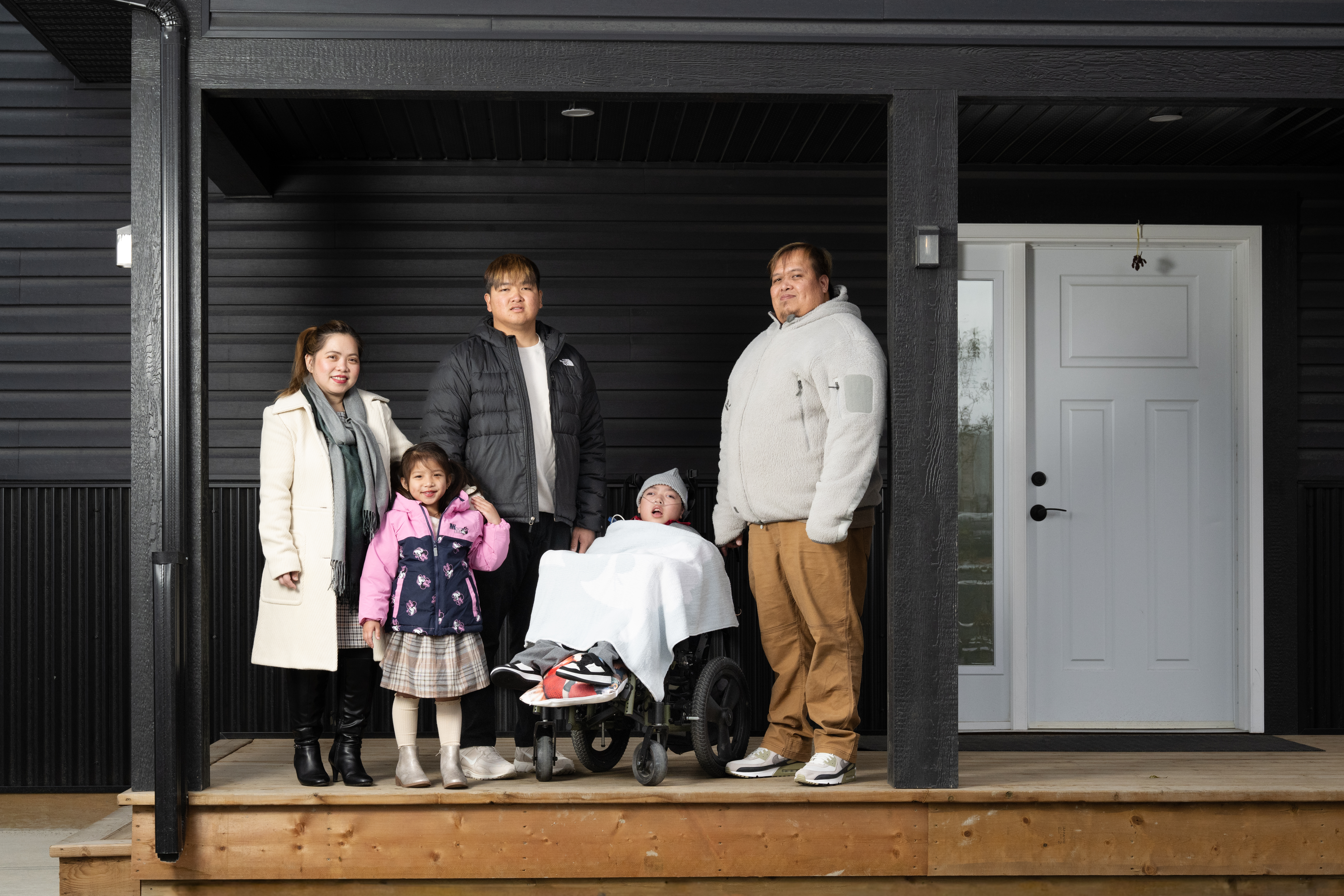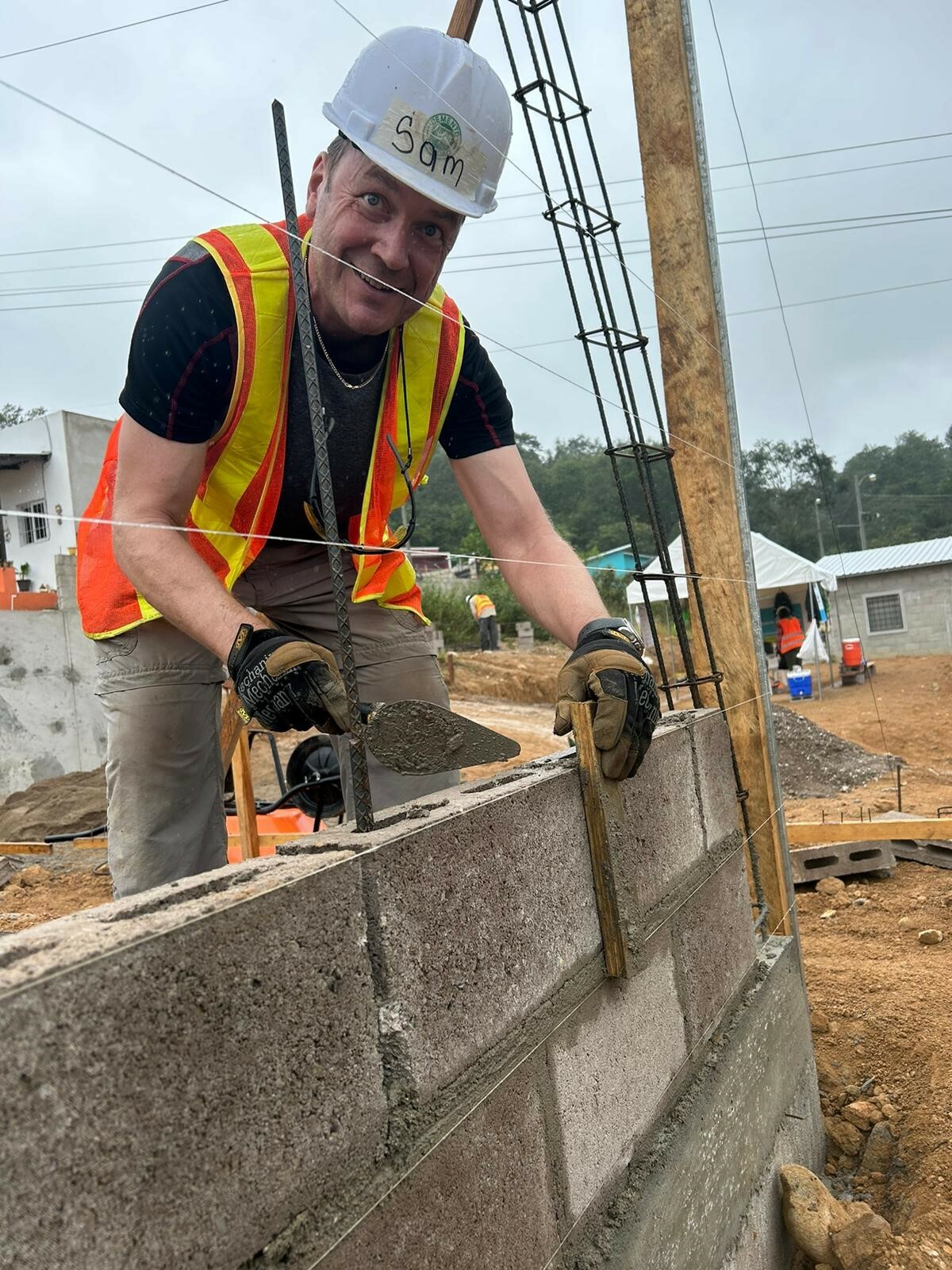Building a sustainable future
Habitat homes across Canada are built with energy efficiency in mind, helping homeowners save on energy bills while contributing to the environment by reducing greenhouse gas emissions and energy demand.
This includes close to 400 homes built since 2019 through our partnership with the Canada Mortgage and Housing Corporation (CMHC). With a minimum energy consumption and greenhouse gas reduction of 25%, these homes meet or exceed the standards required by the federal government.
Local Habitats are also employing innovative technologies to build passive homes that can create up to 90% in energy savings for Habitat homeowners; and net-zero and net-zero ready homes that are 80-100% more energy efficient than homes built to conventional standards.
Homes like the ones in Habitat for Humanity Northumberland’s Building Hope with Families project, a seven-unit, net-zero townhome development in Baltimore, Ontario— the largest net-zero Habitat build in Canada.

What is a net-zero home?
“Net-zero homes produce just as much or more clean energy than they consume, greatly reducing our impact on the environment,” says Deb Wilson, Habitat Northumberland’s Director of Construction.
Net-zero homes are built with airtight building envelopes, enhanced insulation, high-efficiency windows, smart controls, and a built-in renewable energy system – solar panels in Habitat Northumberland’s case. All energy will be electric, with air-source heat pumps heating and cooling the homes and a separate heat pump for hot water. All these measures are projected to provide future Habitat homeowners with lower energy costs and a reduction of greenhouse gases related to their energy consumption.
This means low utility bills – approximately 90% cheaper than for a conventional home – with a lower household carbon footprint and improved indoor air quality.
“We’re ahead of the curve,” continues Deb. While the end goal of Canada’s 2020 National Build Code is for all new low-rise residential buildings to be built to net-zero energy-ready standards (wired for a future renewable energy system) by 2030, Habitat Northumberland is building to net-zero in 2024, already exceeding these standards.
At Habitat, housing affordability means more than just affordable mortgage payments geared to income. It means making housing affordable for families for years to come. Net-zero and net-zero ready homes are some of the ways we are achieving that.
“We are proud of what we’re creating in Baltimore. This seven-unit build is sustainable for both the environment and families. And that’s a win-win.”


